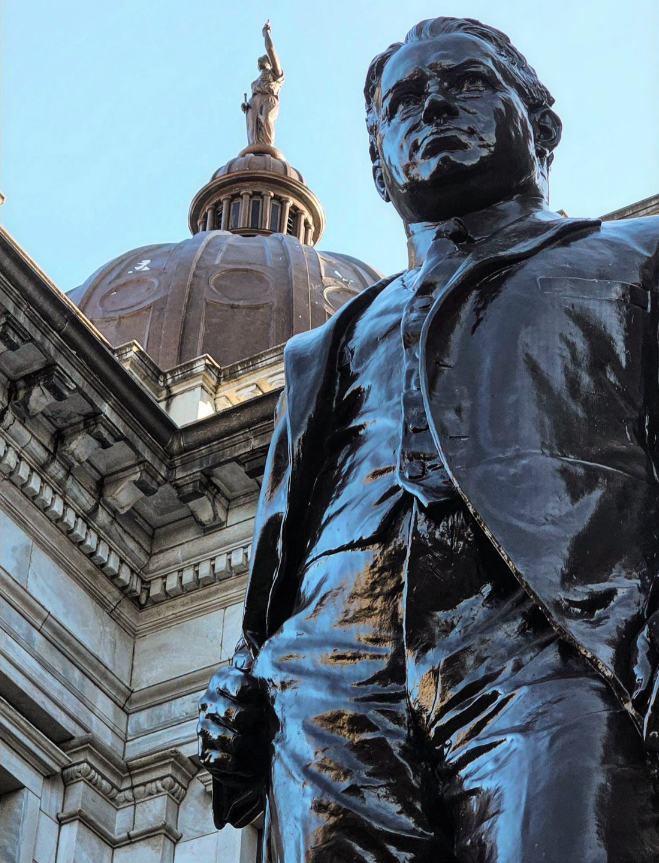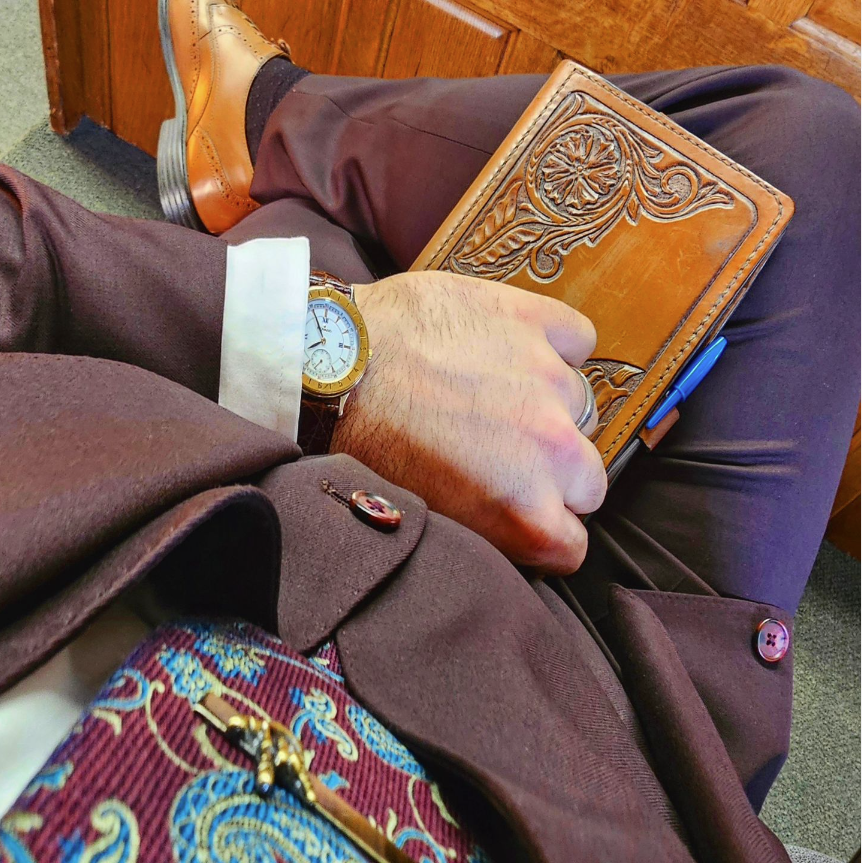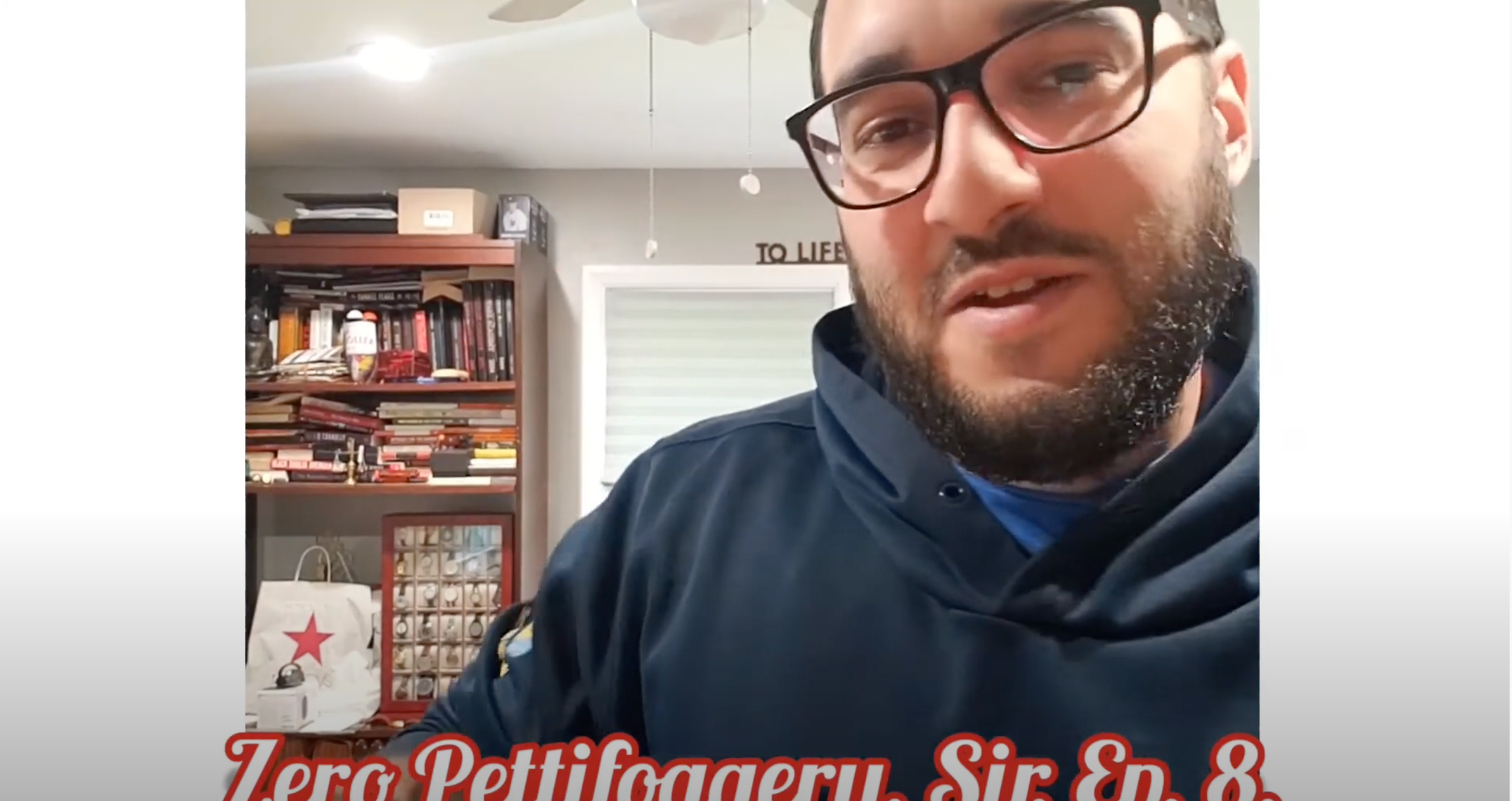The Latest In NJ Law:
May 15, 2019 – An Update on Search & Seizure in General
On May 6th, 2019, the New Jersey Supreme Court granted a petition for certification in State of New Jersey v. Andrews where the Question raised is “Does compelling a criminal defendant to turn over an iPhone passcode violate his or her Fifth Amendment right against self-incrimination?”
In the Case of State v. Andrews, the Defendant was an Essex County Sheriff’s Officer who was identified as assisting a suspected drug trafficker, Quincy Lowery, during a police investigation of the Lowery’s activities. The Defendant’s assistance to Lowery included: (1.) registration of a Jeep and Motorcycle under his name because Lowery’s was suspended; (2.) Text Messages by Andrews to Lowery confirming the Surveillance Operation Vehicles by License Plate in a Picture Message; and (3.) Pervasive Text Message Conversations between Andrews and Lowery. The iPhones were consented to be turned over and later an application of a search warrant was made.
In June of 2016, Andrews was Indicted on Charges of 2nd Degree Official Misconduct, 3rd Degree Hindering Apprehension/Prosecution, and 4th Degree Obstruction of the Admin. of Law. In January 2017, the State filed a motion to compel the disclosure of the PIN and Passcodes for the iPhones. The State argued, in light of Lowery’s factory reset of his own phones, that unlocking the iPhones was the only way to satisfy the search warrant and receive that information suspected.
On May 22, 2017, The Defendant was ordered by the Trial Court Judge to disclose the PIN and Passcodes for his lawfully seized iPhones that he allegedly used to assist Lowery. The Trial Judge limited the access by the State of New Jersey to his Phone Records and Message Logs. The search of the iPhone was to be conducted in-camera in the Court with the presence of all parties. Andrews challenged the order for disclosure with the argument that it violated his right against self-incrimination under the 5th Amendment AND the protections against self-incrimination under New Jersey State Law.
On November 15, 2018, the Appellate Division, led by Judges Yannotti, Rothstadt, and Natali, Jr., affirmed the ruling in favor of the State saying that the order for disclosure was not self-incrimination, it was not a violation of state law, and he wasn’t being asked to provide information not previously discovered.
As previously stated, on May 6th, 2019, the New Jersey Supreme Court granted a petition for certification in State of New Jersey v. Andrews which we await the decision from in the near future.
The information for this post was drawn from a New Jersey Law Journal Article on May 9th, 2019 at 11:19AM by Suzette Parmley.
May 6, 2019 – An Update on Criminal Law
On Appeal from Superior Court of New Jersey – Somerset County Indictment, the Case of The State of New Jersey v. Juan Rodriguez was decided by the Superior Court of New Jersey Appellate Division on Friday in a decision delivered by Deputy Presiding Judge for Administration Jack M. Sabatino. Unfortunately for those on this side of the Criminal Law Bar, the Appellate Division continued its solidification of the Exception to the Warrant Requirement known as the Automobile and/or Motor Vehicle Exception.
In a familiar matter, the Police stopped the defendant for a malfunctioning headlight. Officers noticed the odor of raw marijuana coming from the vehicle and observed several small pieces of marijuana on the front passenger seat. The Defendant had claimed to have borrowed the vehicle form a friend. Upon further inquiry, the Police determined the Defendant’s drivers license had been suspended. The Police removed him from the vehicle, searched him, and placed him under arrest within the cruiser. A search of the Motor Vehicle found $10,000 in Cash and a Large Box of Marijuana.
Initially, the Trial Court had suppressed the marijuana and incriminating evidence found. The trial court had ruled the traffic stop was justified but concluded that police needed a warrant under the circumstances to search the Defendant’s vehicle, noting that it was clear that the vehicle was going to be towed and impounded, and the Defendant was already in the back of the Police cruiser under arrest.
On Appeal, the State argued the Trial Court erred in requiring the State to provide an Exigency or an Emergency Circumstance to justify it’s search. The State argued that the drivers license suspension, arrest of the Defendant, expectation of towing/impounding the Motor Vehicle, and so forth, were not necessary justifications for the search NOT to have been completed at the time of the traffic stop. This was especially true as Police had probable cause to believe that the vehicle had contained evidence of criminal activity. The Court noted that the Supreme Court had instituted a bright line rule authorizing warrantless searches of vehicles during traffic stops, within the Automobile Exception, when Police have probable cause as described AND the circumstances giving rise to probable cause were spontaneous and unforeseeable.
Final ruling – the Appellate Court held that the bright line rule of the Automobile Exception gave Police discretion to conduct an immediate search if they spontaneously have probable cause OR to impound the vehicle and later seek a search warrant.
For all those interested, the Case is available HERE.
February 4, 2019 – An Update on Criminal Law
14-1-8046 State v. Brown, N.J. (Solomon, J.) (46 pp.) Defendants appealed from their judgments of sentence following their convictions for murder, robbery, and weapons offenses. The victim, Tracy Crews, was shot in his home. His wife claimed that Crews incriminated defendants with his dying breath. The investigating detectives testified that Crews’ wife made phone calls within earshot to the individual or individuals who shot Crews. Crews’ murder went cold for three years, during which time his wife, then incarcerated on drug offenses, claimed that Crews only implicated one of the defendants and that she added the other defendant. Defendants were ultimately charged with Crews’ murder. While they were incarcerated, two of defendants’ fellow inmates alleged that defendants made admissions regarding Crews’ murder. The fellow inmates executed favorable plea agreements in exchange for their testimony against defendants. However, a year later detectives received a letter claiming Crews’ wife admitted to conspiring to kill Crews. The trial court ruled that Crews’ purported dying declaration was inadmissible because his wife was not credible. A week into trial, the state turned over documents containing the above information. Defendants submitted their cell phone records, which showed they did not receive a phone call from Crews’ wife on the night of the murder. Ultimately, the trial court permitted Crews’ wife to testify as to her husband’s purported dying declaration. Defendants were found guilty. On appeal, the court vacated defendants’ convictions and remanded for a new trial. The court ruled that the state committed a Brady violation by withholding multiple discovery items until a week into trial. The court ruled that defendants were prejudiced by this violation because the trial court also abused its discretion in excluding admissible impeachment and exculpatory evidence withheld by the state. The court ruled that it would not dismiss the indictment because there was no evidence the state intentionally withheld evidence.
November 29, 2018 – An Update on Driving Under The Influence
State v. Green, N.J. (Solomon, J.) (20 pp.) The state appealed from the denial of its motion to introduce defendant’s two prior DUI convictions. Defendant struck and killed a victim lying in the road. Defendant’s BAC was determined to be .21 percent at the time of the accident. Defendant had two prior DUI convictions from 1998 and 2009, both of which required completion of courses at the Intoxicated Driving Resource Center. Defendant was charged with vehicular homicide and DUI within 1000 feet of a school. The state moved to introduce defendant’s prior DUI convictions, arguing that they were relevant to the issue of recklessness because they proved defendant “had knowledge of the substantial and unjustifiable risks” of DUI. The trial court denied the state’s motion, ruling that defendant’s prior DUI conviction could be unduly prejudicial as the jury could use them to conclude defendant acted in conformity with his prior behavior in the incident on trial. The appellate division affirmed, noting that driving while intoxicated could alone satisfy the recklessness requirement of the vehicular homicide statute. On appeal, the court affirmed, ruling that the trial court did not abuse its discretion to exclude defendant’s prior DUI convictions. Although the court acknowledged that the convictions were relevant to prove that defendant knew of and consciously disregarded the risks of driving while intoxicated, it agreed with the trial court that the probative value of the evidence was outweighed by the prejudicial effect. The court also agreed with the appellate division that the state had far more probative and less prejudicial evidence of defendant’s recklessness in the form of his excessive BAC at the time of the accident.
November 26, 2018 – An Update On Cannabis
The New Jersey legislature took its first major step Monday toward legalizing the recreational use of marijuana by adults. In votes split largely along party lines, a combined meeting of the Senate Budget and Appropriations Committee and the Assembly Appropriations Committee recommended passage of the New Jersey Regulatory and Expungement Aid Modernization Act. It still must pass both the full Senate and Assembly, but Gov. Phil Murphy, long a proponent of marijuana legalization, has indicated his support for the legislation. It remains unclear when the legislation will be put up for final votes. The sponsors are Senate Judiciary Committee Chairman Nicholas Scutari, D-Union, who has been pushing for legalization for years; Senate President Stephen Sweeney, D-Gloucester; and Assemblywoman Annette Quijano, D-Union. Scutari said the bill is likely to be subject to a number of amendments to assuage opponents’ concerns—chiefly stiffened penalties for black market marijuana dealers, additional funds for training law enforcement officers and more money to be used for educating youth about the potential dangers of using drugs, including marijuana.
“This is just the right thing to do,” Scutari said. “It’s clear that prohibition hasn’t worked.” Scutari noted that marijuana use among minority groups is heavy and that those groups have been particularly hard-hit by enforcement efforts. Those with even minor marijuana convictions often lose their right to vote and to obtain funds for educational purposes and face difficulties in finding jobs. There is, Scutari said, a racial tinge to marijuana prohibition laws. “In effect, they prohibit minorities from participating” in society, he said. “The only people who are going to be hurt by this [legislation] are drug dealers,” added Sen. Patrick Diegnan, D-Union. “This bill will create a strictly regulated system that permits adults to purchase limited amounts of marijuana for personal use. It will bring marijuana out of the underground market where it can be controlled, regulated and taxed, just as alcohol has been for decades,” Scutari said in a separate statement after the vote. Ten states and Washington, D.C., have legalized recreational marijuana for adults over 21. There was significant opposition to the bill, chiefly from law enforcement groups and others who claim the legislation is nothing more than a grab for money by lawmakers and a governor who are desperate for additional tax revenues and for venture capitalists looking to make easy money off of users’ backs.
“This is not about social justice,” said one of the chief opponents, Sen. Ronald Rice, D-Essex. “It’s about money for white investors.” The combined committees heard more than four hours of testimony from both opponents and supporters, although it appeared clear from the beginning that the sponsors had more than enough votes to recommend passage. In short, the legislation would permit the possession and personal use of one ounce or less of marijuana for people 21 and over, create a regulatory scheme for what is expected to become a burgeoning industry, and levy a 12 percent tax on a commercial marijuana industry in the state. An extra 2 percent excise tax could be raised for cities and towns that allow marijuana sales businesses to operate within their borders. Additionally, the legislation also calls for a fast-moving expungement process for those who have been convicted or arrested for possession or distribution of an ounce or less of marijuana. Under the legislation, home delivery of marijuana would be allowed, as would the creation of lounges where people could gather and smoke marijuana. Most sections of the bill would take effect within 180 days of enactment.
November 20, 2018 – An Update on BYOB Restaurants
A federal judge has ruled that New Jersey’s law barring restaurants from advertising “bring your own beer” policies is unconstitutional. The state ban on advertising policies that allow patrons to bring their own beer and wine to restaurants, known as BYOB, “places a content-based restriction on speech that fails strict scrutiny because it is not supported by a compelling government interest nor is it the least restrictive means of achieving the government’s stated purpose,” U.S. District Judge Joseph Rodriguez of the District of New Jersey ruled in GJJM Enterprises v. City of Atlantic City.
The state Division of Alcoholic Beverage Control “presented no compelling government interest for banning BYOB advertising, while permitting liquor stores and restaurants with liquor licenses to advertise on-site alcohol sales,” Rodriguez said. An adult entertainment club in Atlantic City, Stiletto, sued to overturn the ban in April 2017, and Rodriguez granted the club’s motion for summary judgment Monday. The judge directed the parties to submit a proposed permanent injunction to reflect the ruling. The challenged law said restaurants and other establishments selling food or beverages, but that also don’t have a liquor license, can allow customers to “bring and consume their own wine or malt alcoholic beverages.” But the statute said those establishments may not “advertise inside or outside of such premises” to announce their BYOB policy. Stiletto contended the fear of prosecution under the ban on BYOB advertising, which is classified as a disorderly persons offense, kept it from notifying clients by radio, television, print or online ads, or by exterior or interior signage, that they may bring their own wine or beer. Stiletto, which has no liquor license, serves nonalcoholic beverages and allows customers to bring beer and wine, but not liquor or mixed drinks. The establishment seeks to include the term “BYOB” on its website, on menus, in print advertising and signage. Stiletto sued Atlantic City and and its police department in addition to the state ABC and attorney general. The municipal defendants were dismissed in 2017.
Stiletto was represented by Daniel Silver of Silver & Silver in New Britain, Connecticut; Jennifer Kinsley of Kinsley Law Office in Cincinnati; and Stephen Holtzman of Holtzman & McClain in Linwood. Silver called the decision “very reasonable,” adding, “quite frankly, we expected it. I think the law was very clear in this area.” Silver said Rodriguez’s ruling was made stronger because it analyzed the New Jersey BYOB regulation under both the strict scrutiny standard from Reed v. Town of Gilbert, Arizona, a 2015 U.S. Supreme Court ruling, and the commercial speech standard from a 1996 Supreme Court ruling, 44 Liquormart v. Rhode Island. As in Reed, where the court overturned a town law setting different rules for commercial signs and those carrying political messages, the BYOB advertising ban draws distinctions based on the message the speaker conveys, making it presumptively unconstitutional and subject to strict scrutiny, Rodriguez said.
And like 44 Liquormart, which concerned a ban on ads disclosing the price of alcoholic beverages, the BYOB advertising ban “fail[s] to leave open ‘satisfactory’ alternative channels of communication,” instead providing “a complete ban on truthful, non-misleading commercial speech about a lawful product,” Rodriguez said. The state argued that it has a strong interest in protecting the health, safety and welfare of the people of the state through the promotion of temperance, Rodriquez said. However, the Supreme Court held in 44 Liquormart that with respect to the advertisement of alcoholic beverages, “that banning speech is different from and more intrusive than banning conduct,” Rodriguez said. The state defendants were represented by Deputy Attorney General Valentina DiPippo. The Attorney General’s Office declined to comment on the case.
November 13, 2018 – An Update on Driving Under The Influence
Today, in State v Cassidy, the NJ Supreme Court agreed with its Special Master that a NIST traceable check is required for Alcotest reliability and that any tests done without such a calibration step is admissible. The Court lifted the stay on Dennis cases and relaxed the 5 year bar on PCRs for disposed cases to be brought on the issue. “The Court orders the State to notify all affected defendants of its decision that breath test results produced by Alcotest machines not calibrated using a NIST-traceable thermometer are inadmissible and commends to the State that it require the manual recording of the NIST traceable readings going forward. Further, the Court lifts the stay on all pending cases so that deliberations may commence on whether and how those cases should proceed. For those cases already decided, affected defendants may now seek appropriate relief. Because the State waited approximately a year to notify the affected defendants, the Court relaxes the five-year time bar, R. 7:10-2(b)(2), in the interests of justice. The Court asks the Director of the Administrative Office of the Courts to monitor these cases and recommend how best to administer them in the event any special measures are needed. Finally, as to defendant Cassidy, the Court exercises its original jurisdiction and vacates her conviction.” Case will be available on Judiciary website here.






